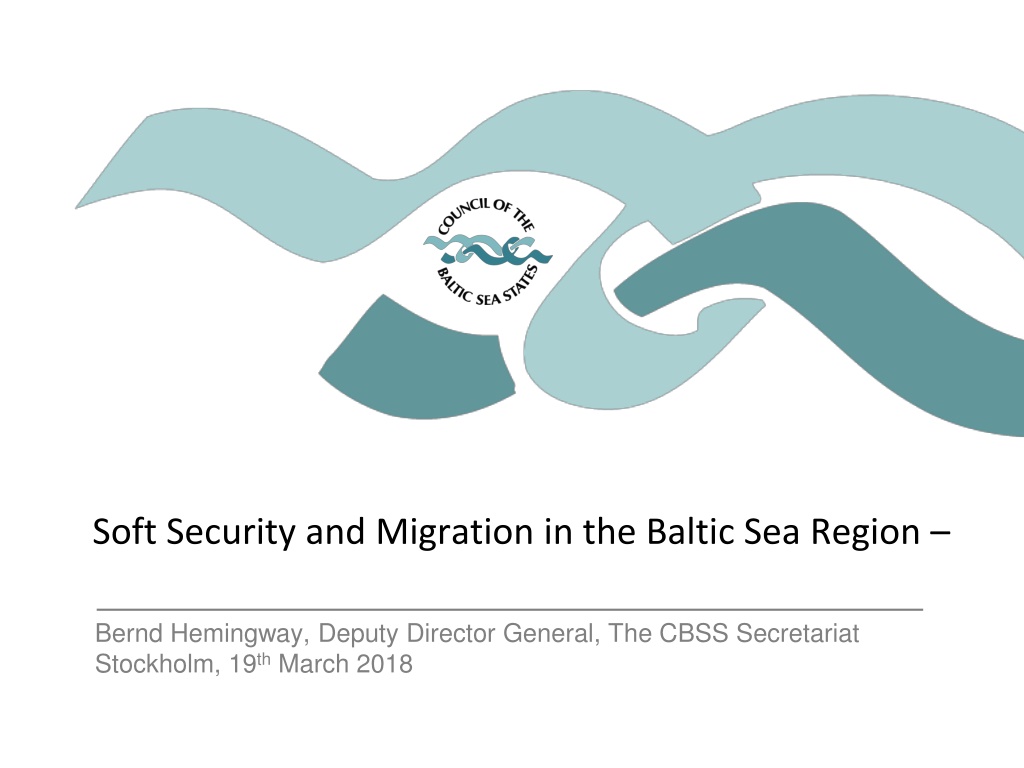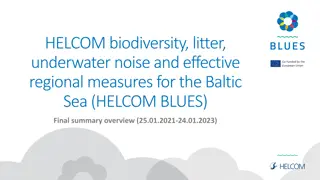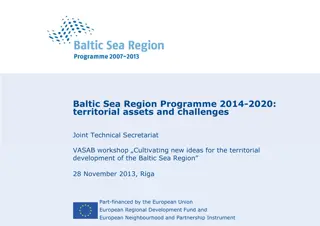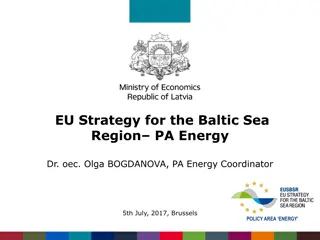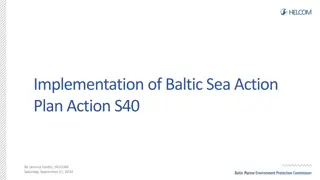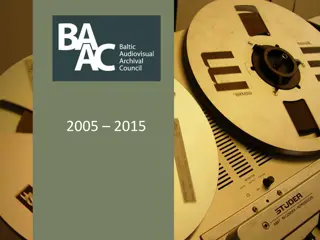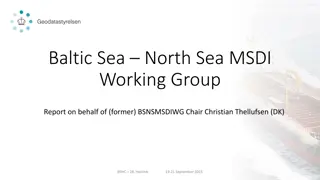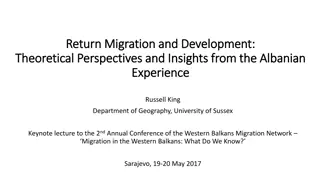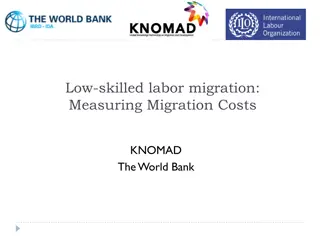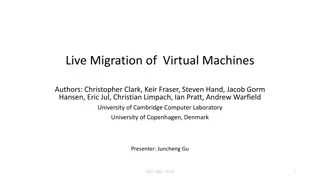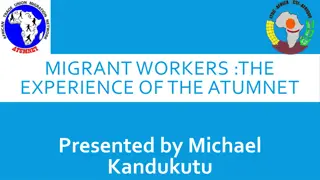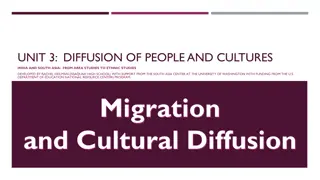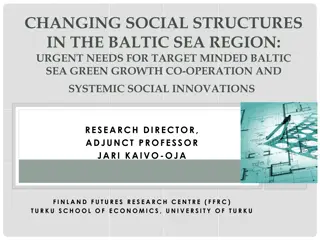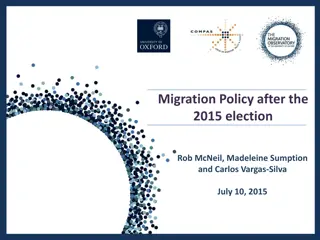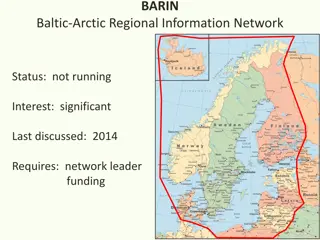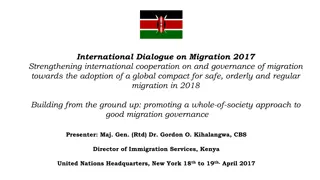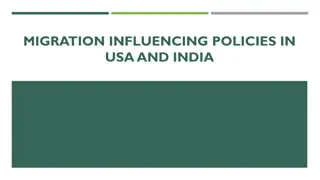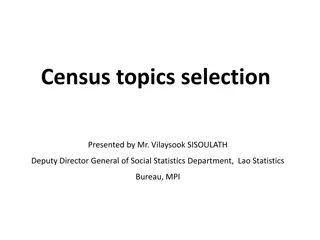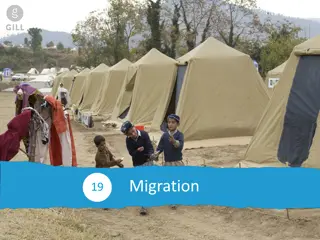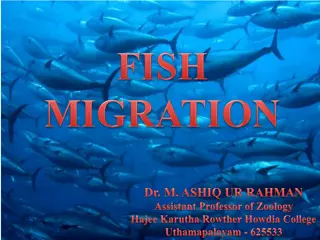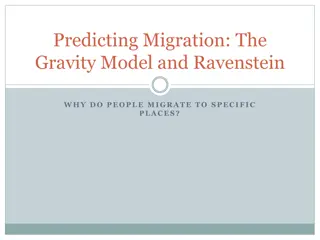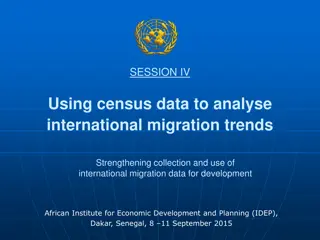Soft Security and Migration Management in the Baltic Sea Region
The conference in Helsinki addressed soft security and migration challenges in the Baltic Sea Region, emphasizing the integration of migrants and societal security paradigms. It highlighted the need for a consensual approach, dialogue, and promotion of social inclusion. The current migration system faces political instability, institutional unpreparedness, and economic burdens. Recommendations include rethinking asylum policies towards a more efficient and inclusive approach.
Download Presentation

Please find below an Image/Link to download the presentation.
The content on the website is provided AS IS for your information and personal use only. It may not be sold, licensed, or shared on other websites without obtaining consent from the author. Download presentation by click this link. If you encounter any issues during the download, it is possible that the publisher has removed the file from their server.
E N D
Presentation Transcript
Soft Security and Migration in the Baltic Sea Region Bernd Hemingway, Deputy Director General, The CBSS Secretariat Stockholm, 19thMarch 2018
Soft Security and Migration in the BSR. The Conference in Helsinki, 30-31 May 2017 A Finnish initiative answering the pressing challenges noted in the Warsaw Declaration Regional responses to global challenges . The conference had been carried out in cooperation with the CBSS under the Icelandic Presidency. Funded by the Finnish Ministry for Foreign Affairs Participation of wide range of experts and practitioners from all relevant agencies and services (Ministries of Interior, Ministries of Social Affairs, Border Guards, Immigration services, social services), regional and local governments, research institutions. Three main perspectives as workshops on the second day: Migration management Integration of migrants The rights of migrants 2
The soft security framework in a migration context: integration of migrants as a key challenge Reference to societal security paradigm - the ability of a society to persist in its essential character under changing conditions Soft security: creating and maintaining a system of institutions and practices founded on a consensual approach, dialogue, shared norms and values, and promotion of social inclusion and integration. Key elements of the approach: cooperation, trust and maintaining social cohesion without using extensively coercive measures. Soft security involves establishing cooperation and a trusting atmosphere, where threats are mitigated through preventive and proactive measures. 3
Migration management from a soft security perspective Massive mixed migration flow as a security challenge Political instability and fragmentation Institutional upreparedness and migration fatigue Increasing economic burdens for receiving states and the dysfunctional asylum system The inefficient return of migrants and rejected asylum seekers Lack of preparedness is an issue which needs to be addressed 4
Migration management. Recommendations. Rethink the current asylum migration system and migration management. Simple adjustments are unlikely to lead to necessary long term and sustainable solutions; rather there is a need for a paradigm change. This should be seen as a process and there is a need for further analysis and international dialogue. A new migration management and asylum system should not be about providing less assistance to fewer people, but about assisting more people, more efficiently, in a way which does not jeopardize soft security and stability in our own countries. 5
Safeguarding the rights of migrants. Reducing the risk of exploitation and trafficking. Main challenges: Lack of political will. Insufficient knowledge of human rights standards, refugee law and adequate protection responses. Lack of the capacity in public institutions and agencies to respond to protection needs. The major challenges to protection of forced migrants, asylum seekers, refugees and victims of trafficking in human beings is the lack of identification of their status and protection needs at borders and in reception centres. 6
Safeguarding the rights of migrants. Recommendations. Train border guards and police officers and provide sufficient human and material resources to ensure the correct identification of forced migrants at the border. Establish procedures among all actors involved in migration governance and services to ensure follow up on the personal situation of asylum seekers, refugees and victims of trafficking in human beings to address situations of vulnerability and/or exploitation that may endanger their safety and well-being. Implement proactive measures to prevent forced migrants with insecure legal statuses from becoming victims of trafficking in human beings or other severe forms of exploitation. 7
The challenges of early integration. Migration has to be accepted as a permanent process and one with long perspective consequences that very often leads to long term settlement. The lessons to be learned from the past on the effectiveness of integration policy: Integration is not matter of time. It needs an active intervention from the state s side. An issue of second and third generations. There is no universal strategy to integration. Different groups face unique problems with adaptation to the host society. Early integration of migrants does not take place at the state level, in practice social capital and trust between newcomers and hosts is built in the local communities and neighbourhoods. 8
The challenges of early integration. How to address them? Multi-level and multi-stakeholder cooperation and communication. Early integration measures: processing migrant s application and make choises regarding integrating measures; education; connection to labor market and vocational trainig; housing. Mitigating negative perception of migrants and asylum seekers. Information policy plays a key role and has a powerful impact on integration processes -increasing national citizens abilities to deal with diversity. Local initiatives on ground level are crucial. 9
The challenges of early integration. Recommendations. Impelementation of one stop shop where migrants are able to receive all necessary services in one place. Dialogue platforms as open and regular communication and coordination tool for involved stakeholders. Facilitation of direct and regular contacts between newcomers and locals, local institutions, civil society organizations, communities and individuals. The example: project TRUST Good relations in Finland. 10
Ways forward The CBSS is an optimal forum to continue the work. Need to prioritize effective migration governance. Need to enhance cooperation between public institutions. 11
The Report The Conference Report can be downloaded from the CBSS website: http://www.cbss.org/wp-content/uploads/2017/12/REPORT.pdf 12
